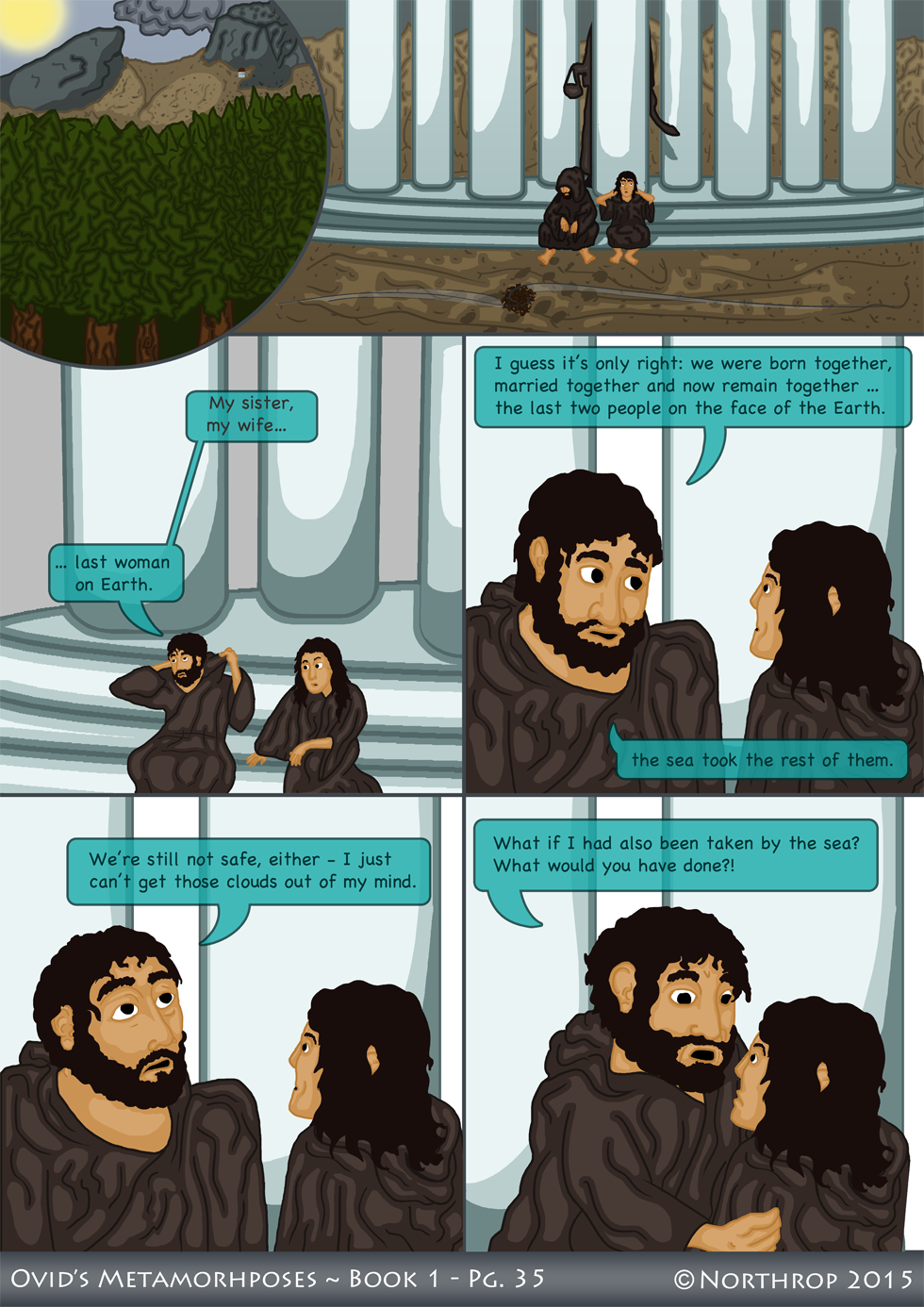Met. 1.348-59 – Taking Stock
Redditus orbis erat; quem postquam vidit inanem
et desolatas agere alta silentia terras,
Deucalion lacrimis ita Pyrrham adfatur obortis:
“O soror, o coniunx, o femina sola superstes,
quam commune mihi genus et patruelis origo,
deinde torus iunxit, nunc ipsa pericula iungunt,
terrarum, quascumque vident occasus et ortus,
nos duo turba sumus! possedit cetera pontus.
haec quoque adhuc vitae non est fiducia nostrae
certa satis! terrent etiamnum nubila mentem.
quis tibi, si sine me fatis erepta fuisses,
nunc animus, miseranda, foret? […]
(Met. 1.348-59)
The world was restored. When afterwards Deucalion saw it was empty
and a deep silence filled the desolate lands,
he spoke these words to Pyrrha, with tears welling in his eyes:
“Oh sister, oh wife, oh last woman on earth,
who was joined to me by both my family and father,
then joined in a marriage bed, now our perils also join us together.
In the whole world, between the setting and the rising sun,
we are the last two of all the masses! The sea took the rest.
There is little certain hope that we will survive!
the clouds still terrify my mind.
What would you think, pitiable creature,
if you were fated to find yourself without me? […]
We’ve cut a line again… This time it’s in the middle of a speech, and frankly the thing flows better in comic form this way. Sentences in Latin, a language that didn’t use punctuation until long after Ovid, can often go on and on and on, especially in poetry. Often, they cross multiple lines and end in the middle one, necessitating the cut. At any rate, along the lines of the punctuation in Tarrant’s OCT, the speech flows well and easily translates to comic form. I’ll have more to say on it overall next week, when we get to hear the end of Deucalion’s speech.

Discussion ¬